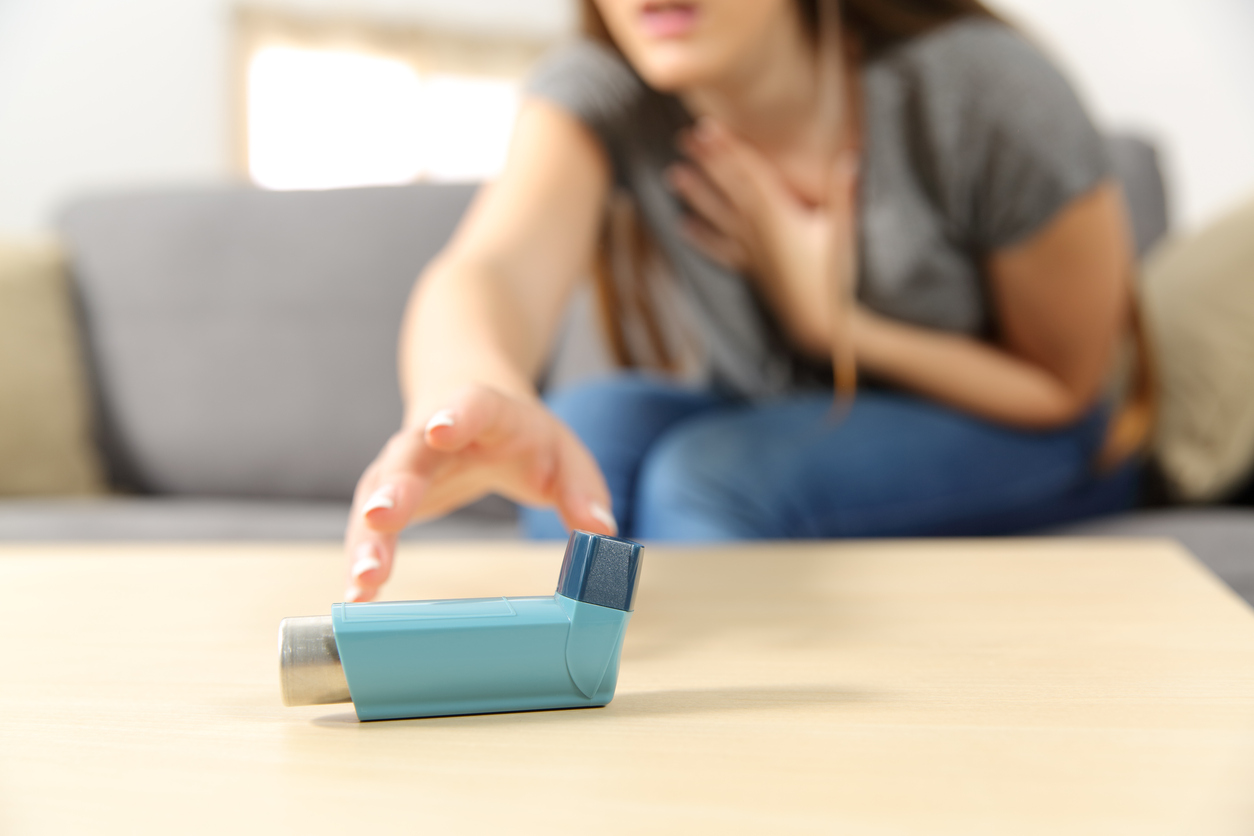Asthma is a medical condition that progresses over time. Recognizing the signs of worsening asthma is the first step in getting your illness under control.
Asthma in a Nutshell
Asthma is a chronic lung disease that inflames and constricts the airways. It is set off by certain triggers and exacerbates over time. Asthma can be relatively well-controlled by following a treatment plan prescribed by your asthma specialist in New York, as well as following home health care tips.
Factors that Worsen Asthma
Things that commonly make asthma worse include:
- Dust
- Pollen
- Mold
- Pollution
- Other airborne irritants
Some people’s asthma worsens even without any exposure to triggers. For them, symptoms get worse as inflammation builds up over time.
Signs that Your Asthma is Getting Worse
Increased Difficulty Breathing
You may notice that it is getting harder to breath during normal activities. For example, you used to be able to carry your groceries from the store to your car without any problem; now, you find yourself huffing and puffing to catch your breath from this basic activity.
Peak Flow Meter Readings Drop
A peak flow meter is somewhat like a blood pressure cuff for people with asthma, in that it gives an objective measurement of their condition. If peak flow meter readings drop and remain on the low side, this is a sign your asthma is getting worse.
Limitations with Exercise
If your decreased motivation to exercise is due to lack of stamina or troubled breathing during workouts, the cause could be worsening asthma.
Frequent Use of a Quick Relief Inhaler
According to the National Heart, Lung, and Blood Institute, your asthma is considered out of control if you need to use a quick relief inhaler more than twice per week.
Nighttime Asthma Attacks
It’s one thing to suffer from asthma attacks when you are out in a garden full of pollen or in a smoky bar. But if you wake up at 3am with coughing and wheezing, needing to reach for your rescue inhaler, this is a sure sign that your asthma is poorly controlled or getting worse.
Disrupting Your Normal Routine
Asthma sufferers can experience flare-ups during times of high-stress, which sometimes forces them to miss days of school or work. This is just part of the condition. However, if your asthma is keeping you home on a regular basis, this likely means it is getting worse.
Don’t Ignore the Signs!
If you notice that your asthma is in fact getting worse, do not ignore the signs. This is a vital window of opportunity to prevent future asthma attacks.
What to do if Your Asthma is Getting Worse
Make an Appointment with Your Pulmonologist or Asthma Nurse
Make this appointment as soon as you realize your symptoms are getting worse. Your doctor or nurse can make changes to your written Asthma Action Plan.
Follow the Advice on Your Asthma Action Plan
Your asthma specialist will make sure to put you on an appropriate asthma management regimen that works for your lifestyle and specific needs. They may also change your medication types, dosages, or frequencies.
Take a Rescue Course of Steroid Tablets
Steroid tablets (Prednisolone) may be prescribed by your doctor for use when your symptoms get worse. You should have at least one course to keep at home.
Continue to Avoid Triggers as Much as Possible
Asthma Triggers seem to lurk everywhere, but if you suffer from the condition, you must do your utmost to avoid triggers and save yourself the pain of an attack.
Stick to Your Treatment Regimen No Matter What
No matter how good you feel, it’s important to maintain your prescribed routine. “Too often, people will ease up on their controller medications and use their rescue inhaler instead,” Krishnaswamy says. “But if you have persistent asthma, you need persistent therapy.”
Asthma Specialist in New York
If you are worried that your asthma is getting worse, take Dr. Shukla’s online control test to find out more. Dr. Mayank Shukla specializes with asthma care in New York and other pulmonary conditions in Manhattan, Queens, Brooklyn, and Staten Island. Call (917) 746-3431 or email the top sleep and asthma specialist of New York!

